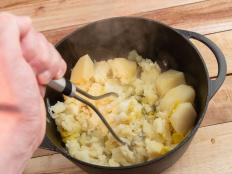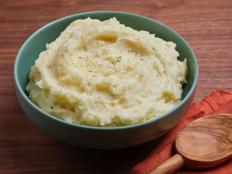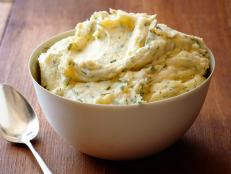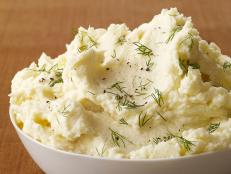Can You Freeze Mashed Potatoes?
Chill out over this favorite Thanksgiving side.
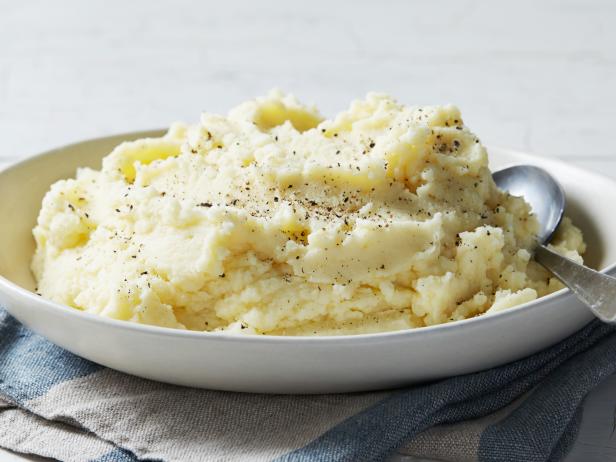
Armando Rafael
Get The All-New Food Network Kitchen App
Download Food Network Kitchen now to sign up and take advantage of the latest offer and get 40+ live classes a week, hundreds of on-demand cooking classes, in-app grocery ordering and so much more.
For more on Thanksgiving mashed potatoes, head to the Food Network Kitchen app to watch our Food Network Kitchen Q&A with Dana Beninati about all things related to your favorite mashed spud.
When it comes to meal prep — whether for weeknight dinners or holiday feasts — figuring out which dishes can be made ahead and frozen is part of a stress-free strategy. Mashed potatoes are relatively straightforward to make, but they still take time to prep, and they take up stovetop real estate. While most chefs advocate for making them fresh, mashed potatoes can be made ahead and frozen until ready to use.
Follow these tips and tricks to ensure that your mashed potatoes maintain their texture and flavor once frozen and reheated.
"Potatoes tend to get grainy and mushy if there is no fat to coat the molecules," says Palak Patel, a chef at the Institute of Culinary Education in New York. "The addition of liquid will also form crystals when the potatoes are frozen. Adding any type of fat, butter and/or cream will help protect the consistency of the potatoes — think of the fat as a protective layer."
Patel says that Yukon Gold potatoes generally freeze better than red creamer potatoes, but that fat remains the critical ingredient. For this Classic Mashed Potatoes recipe (pictured), all you need is potatoes, milk and butter. Ina Garten's Sour Cream Mashed Potatoes rely on whole milk, butter and sour cream for an ultra-creamy consistency, while Ree Drummond pulls in butter, cream cheese and half-and-half for her Creamy Mashed Potatoes. Alton Brown relies on a duo of half-and-half and grated Parmesan cheese to add fat and flavor to his Creamy Garlic Mashed Potatoes.
When you're ready to freeze the mashed potatoes, Patel recommends scooping out 1-cup portions onto a parchment paper-lined baking sheet, putting the baking sheet in the freezer until the potatoes harden and then storing the portions in individual resealable, freezer-safe plastic bags. Aaron Deal, chef-owner of River and Rail in Roanoke, Virginia, is a fan of using 1-pint deli containers for storage: Allow the mashed potatoes to cool completely in the refrigerator, then fill each container to the top and secure with an airtight lid. Either way, the potatoes should last for a few months in the freezer. Thaw the potatoes in the refrigerator overnight, then reheat gently. Patel recommends using a double boiler on the stovetop or reheating potatoes in a microwave-safe container at 50% power in 5-minute increments, stirring in between.
What if your mashed potatoes turn out watery? Patel advises boiling one single potato, mashing it and adding it to the mixture to reconstitute the creamy texture. If they're a little on the dry side, add cream, just a little bit at a time, until your potatoes reach the desired consistency.
Related Stories:



























